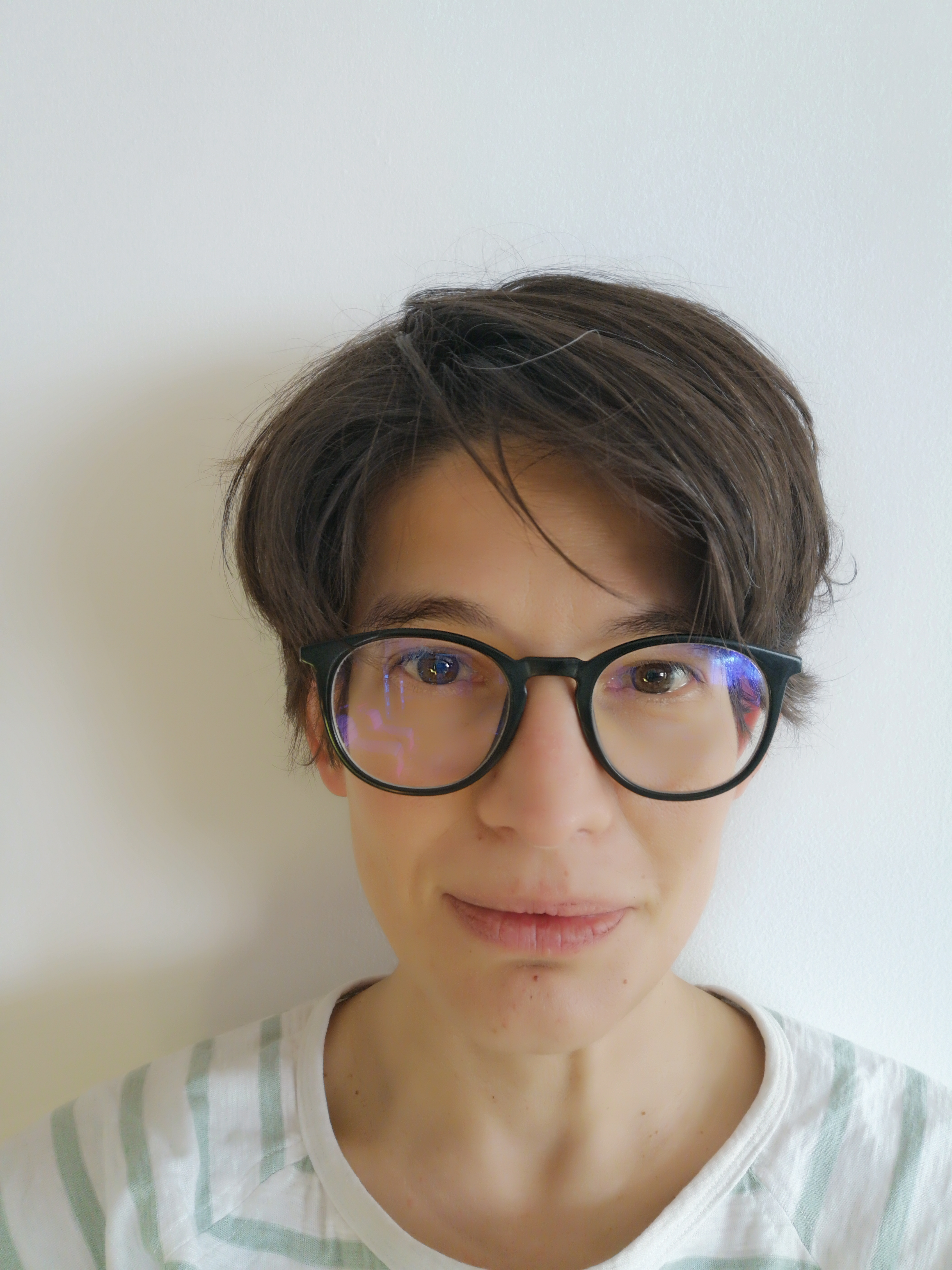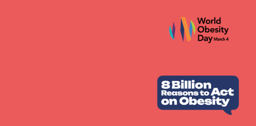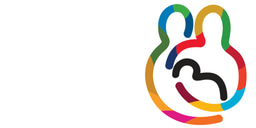Meet the Editor: Q&A with Dr Orsolya Varga to celebrate International Women's Day 2024
Published in Social Sciences, Sustainability, and General & Internal Medicine

 Dr Orsolya Varga obtained her medical (MD) degree in 2003, followed by a degree in law (ML) in 2007. She received her PhD in Health Sciences in 2008 from the University of Debrecen, Hungary. Her research interests include policy impact analysis, research prioritisation, and legal mapping of policies on non-communicable diseases. In late 2023, she joined the Editorial Board of Journal of Health, Population and Nutrition as co-Editor-in-Chief. We spoke with Dr Varga on her research, appointment to JHPN, and thoughts on the role of women in STEM.
Dr Orsolya Varga obtained her medical (MD) degree in 2003, followed by a degree in law (ML) in 2007. She received her PhD in Health Sciences in 2008 from the University of Debrecen, Hungary. Her research interests include policy impact analysis, research prioritisation, and legal mapping of policies on non-communicable diseases. In late 2023, she joined the Editorial Board of Journal of Health, Population and Nutrition as co-Editor-in-Chief. We spoke with Dr Varga on her research, appointment to JHPN, and thoughts on the role of women in STEM.
What is the focus of your research and how does it relate to SDG3 and SDG5?
I have a background in medicine and law. Over the last ten years, my research has focused on the prevention of non-communicable diseases, specifically type 2 diabetes. We are working on modelling geographical inequalities in morbidity of non-communicable diseases in Europe. In terms of non-communicable diseases, health inequalities are closely linked to Sustainable Development Goals 3 and 5. SDG3 seeks to achieve healthy lives and well-being for all, and includes targets to decrease premature mortality from non-communicable diseases, promote mental health, and prevent substance abuse. In addition, SDG5 highlights the importance of reducing inequalities by addressing social determinants such as inequalities in access to health care, poverty, gender inequalities and education, which are key factors contributing to health inequity in non-communicable diseases.
You recently joined Journal of Health, Population and Nutrition as co-Editor-in-Chief. How do you see this moment in your career and how do you envisage the journal progressing?
As Co-Editor-in-Chief of the Journal of Health, Population and Nutrition, my vision is to expand the journal's scope to address critical global health issues, including NCD prevention, environmental factors, and economic inequalities. We aim to increase readership by engaging with the audience, organizing events, and prioritizing researchers from low-income countries. Embracing technology, fostering innovation, and navigating AI's ethical implications are key to shaping the journal's future success. The goal is to make the journal a leading voice in public health and drive global health research and knowledge dissemination.
Becoming a Co-Editor-in-Chief of the Journal of Health, Population and Nutrition is a significant career achievement for a researcher with a special interest in academic integrity. This role offers the opportunity to lead an open-access journal with a focus on global health, maternal and child health, nutrition, and population health determinants. As the Co-Editor-in-Chief, I am responsible for the editorial process, ensuring that high standards are maintained in terms of policies and content scope.
Do you think there are enough opportunities for women in STEM and how can we bring certain issues around gender bias to light?
It can be challenging for women to pursue a career in research, particularly in the natural sciences, due to gender stereotypes, social influences, and educational systems that limit opportunities for women in science and technology. To overcome gender bias and create more opportunities for women, strategies such as encouraging girls to take up STEM subjects from a young age and providing equal educational opportunities for both sexes can be employed. Promoting female STEM role models is important to inspire and guide young women who choose STEM careers. For instance, Katalin Karikó, a Hungarian woman, was awarded the 2023 Nobel Prize in Physiology or Medicine by the Royal Swedish Academy for her work with fellow American researcher Drew Weissman in laying the foundations for mRNA-based medicine. This enabled the rapid development and practical application of novel vaccines against COVID-19. She has become a role model for numerous young girls in Hungary who aspire to study and pursue a career in science.
There are even opportunities at higher levels, such as implementing policies to support gender equality in STEM education and employment, such as the European Commission's initiatives to close the gender gap in STEM.
What advice would you give to younger women starting out in their career today, particularly those looking to go into STEM?
If you have a genuine passion for science, pursuing a career in academia may be a good fit for you. However, it is important to note that academia is highly competitive and failure is common. It is crucial to learn from failures and not let them discourage you. Additionally, it is important for your family to understand and accept the demands of being a researcher. Researchers do not limit their thinking and writing to a factory setting, as it extends beyond the typical 9am to 5pm schedule. Working in academia provides the joys and pains of intellectual freedom, making it a valuable experience.
Finally, what does International Women's Day mean to you and what message would you like to share?
Since 1910, women have been celebrating International Women's Day on the 8th of March to highlight the strength, resilience, and achievements of women worldwide. It serves as a reminder of the importance of women's rights and gender equality. Many individuals fail to recognize the importance of this day. I was delighted to hear that in 2019 the Berlin parliament passed a bill to make International Women's Day a public holiday. The message I want to convey is that empowering and elevating women is not just a one-day event, but an ongoing effort to create a more inclusive and equal society. As women, we should strive to support and empower each other, recognizing the value and potential that every woman represents. We can create a world where gender equality is not just a goal, but a reality for all.
Happy International Women's Day!
Follow the Topic
-
Journal of Health, Population and Nutrition

This journal brings together research on all aspects of issues related to population, nutrition, and health. The journal publishes articles across a broad range of topics including global health, maternal and child health, nutrition, common illnesses, and determinants of population health.
What are SDG Topics?
An introduction to Sustainable Development Goals (SDGs) Topics and their role in highlighting sustainable development research.
Continue reading announcementRelated Collections
With Collections, you can get published faster and increase your visibility.
Migration and its effects on maternal and child health and nutrition
International Journal for Equity in Health is hosting a cross-journal Collection in collaboration with the Journal of Health, Population and Nutrition.
This cross-journal Collection is seeking contributions showcasing research on the intersection of migration and maternal and child health and nutrition. Both forced and voluntary migration have become a global phenomenon with profound implications for mothers' and children’s health, nutrition, and overall well-being. This special edition will highlight diverse methodological approaches, including qualitative, quantitative, and mixed-methods studies, that contribute to a deeper understanding of health inequities among migrant populations and offer potential solutions to mitigate them.
This special issue aims to bridge gaps in the evidence base and promote research incorporating diverse disciplinary perspectives and methodological synergies. We welcome theoretical, review, and empirical contributions that enhance our understanding of the complex social, political, economic, and cultural determinants shaping the health of migrant women and children. In addition to the mentioned methodologies, several others can be incorporated to strengthen this research. Participatory and community-based methods, such as participatory action research (PAR), involve affected communities in all stages of the research process, ensuring relevance and applicability. Qualitative and ethnographic approaches, including in-depth interviews and focus groups, provide a deeper understanding of the cultural and social contexts influencing health. Longitudinal studies track health outcomes over time, offering insights into the long-term effects of migration. An intersectional approach considers how multiple identity factors intersect and affect health. Social network analysis explores the role of social connections in accessing healthcare and resources. Policy analysis methods assess how national and international policies impact migrant health, while big data and spatial analysis reveal trends across different regions and contexts. We encourage submissions that engage with affected communities, apply innovative methodological frameworks, and inform policy and practice.
Submissions may include, but are not limited to, the following areas:
Health disparities in migrant populations:
- Examining health inequities affecting migrant mothers and children.
- Identifying key determinants of health disparities in various migration contexts.
Nutritional challenges and interventions:
- Assessing the nutritional status of migrant mothers and children.
- Evaluating policies, interventions, and strategies aimed at addressing nutritional challenges among migrant populations.
Impact of migration policies:
- Analyzing how migration policies influence maternal and child health outcomes.
- Investigating the role of legal frameworks in shaping access to healthcare and nutrition for migrant populations.
Psychosocial well-being:
- Exploring the psychosocial effects of migration on maternal and child health.
- Assessing the role of social support systems in mitigating mental health challenges.
Community health and resilience:
- Investigating community-based approaches to improve the health and resilience of migrant populations.
- Understanding the role of cultural adaptation and integration in health outcomes.
Health systems and access to care:
- Examining how health systems address the needs of migrant mothers and children.
-Identifying innovative approaches to enhance healthcare accessibility and equity for migrant populations.
This Collection supports and amplifies research related to SDG 5, Gender Equality.
This collection is open for submissions from all authors on the condition that the manuscript falls within both the scope of the collection and the journal it is submitted to.
All submissions in this collection undergo the relevant journal’s standard peer review process. Similarly, all manuscripts authored by a Guest Editor(s) will be handled by the Editor-in-Chief of the relevant journal. As an open access publication, participating journals levy an article processing fee (International Journal for Equity in Health, Journal of Health, Population and Nutrition). We recognize that many key stakeholders may not have access to such resources and are committed to supporting participation in this issue wherever resources are a barrier. For more information about what support may be available, please visit OA funding and support, or email OAfundingpolicy@springernature.com or the Editor-in-Chief of the journal where the article is being submitted.
Publishing Model: Open Access
Deadline: Apr 30, 2026
Traditional diets for better health outcomes
Traditional diets have long been recognized for their potential to enhance health outcomes, yet our collective understanding of their impact is still evolving. Advancing research in this area is vital, as it not only contributes to improved public health strategies but also promotes cultural preservation and biodiversity. Recent advances have shed light on the microbiome's interaction with traditional foods, revealing how these diets can reduce the risk of chronic diseases and improve overall well-being. Furthermore, studies have demonstrated the positive correlation between traditional dietary patterns and mental health, emphasizing the holistic benefits they offer. As we look toward the future, continued exploration may unveil new therapeutic applications of traditional foods, innovative preservation methods, and strategies for integrating these diets into modern lifestyles. By fostering an interdisciplinary approach, we can unlock the potential of traditional diets to address contemporary health challenges and create sustainable solutions for a healthier global population.
Topics of interest include but are not limited to:
- Nutritional benefits of traditional diets
- Cultural implications of dietary practices
- Traditional foods and chronic disease prevention
- The role of biodiversity in nutrition
- Food security and traditional agricultural practices
- Integrating traditional diets into modern health frameworks
- The impact of traditional diets on mental well-being
- Case studies on successful traditional dietary interventions
All submissions in this collection undergo the journal’s standard peer review process. Similarly, all manuscripts authored by a Guest Editor(s) will be handled by the Editor-in-Chief. As an open access publication, this journal levies an article processing fee (details here). We recognize that many key stakeholders may not have access to such resources and are committed to supporting participation in this issue wherever resources are a barrier. For more information about what support may be available, please visit OA funding and support, or email OAfundingpolicy@springernature.com or the Editor-in-Chief.
Publishing Model: Open Access
Deadline: Jul 31, 2026





Please sign in or register for FREE
If you are a registered user on Research Communities by Springer Nature, please sign in